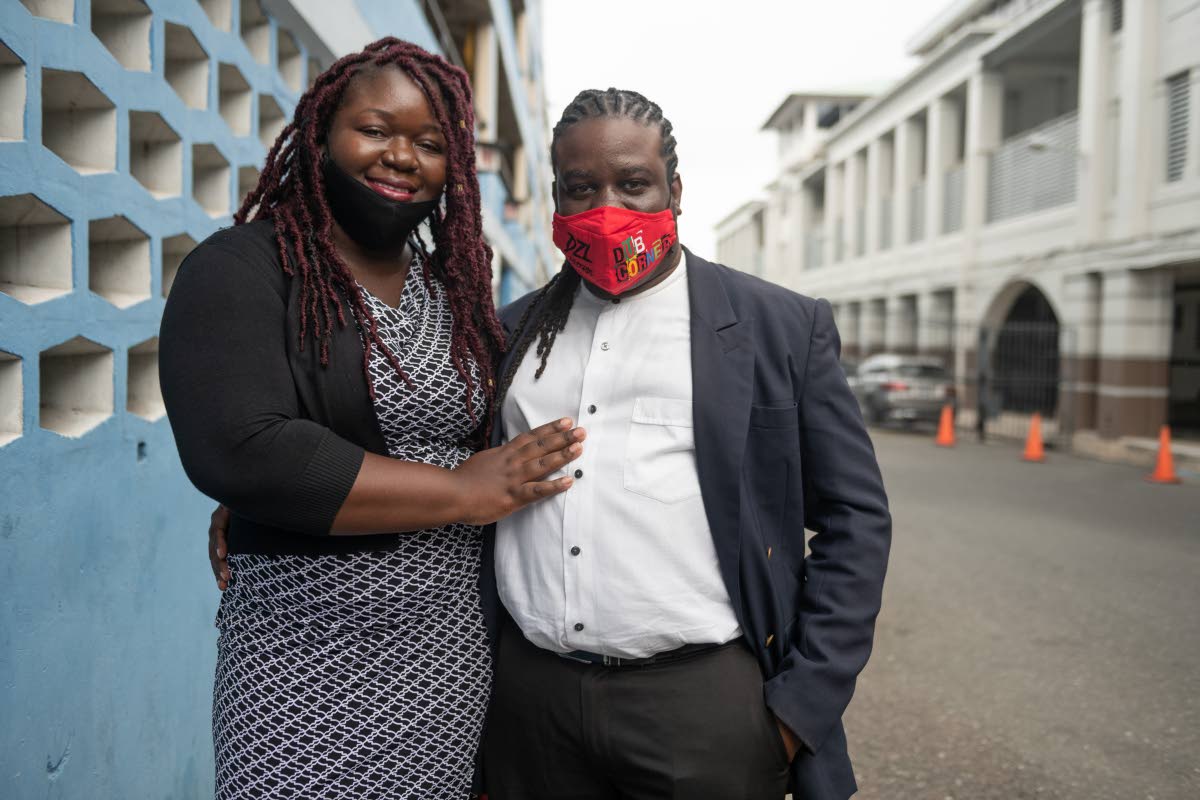(Jamaica Gleaner) “Really?” That was the reaction from the seven-year-old Kensington Primary School student after learning that her constitutional rights were not breached when the school refused her access because of her dreadlocks, two years ago.
The ruling was handed down in the Supreme Court on Friday, and while the written judgment has not been given, the declaration made by the judges has elicited widespread reaction.
State minister in the Ministry of Education, Youth and Information, Alando Terrelonge, took to Twitter to vent along with scores of other Jamaicans.
“I am not celebrating it [Emancipation]. I am embarrassed to say I live/work in the land of #BobMarley. For too long, we have pandered to stakeholders. Consultation after consultation and to what end? I will celebrate when my recommendations for changes to #EducationACT are implemented. Time come!” fumed the dreadlocked politician, whose phone went unanswered when contacted by The Sunday Gleaner yesterday.
Jamaicans for Justice had initially filed the case in 2018 and obtained an injunction allowing the child to attend the school, where it is understood she has been performing exceptionally well, despite the controversy surrounding her hair.
The organisation said it has taken note of the court’s oral decision and awaits the written judgment explaining the reasons for the decision.
“We believe that no child in Jamaica should be denied education because they wear locks, or forced to cut their hair. That this news comes during Emancipation celebrations reminds us of the need to ‘emancipate ourselves from mental slavery’,” the group said.
Expressing concern on the issue, yesterday Prime Minister Andrew Holness said “Our children must not be discriminated against, or deprived of their right to an education on the basis of their hairstyle. This government does not believe that there should be any law which could be interpreted to deny access to a citizen merely on the basis of their hairstyle. We have, as a rights sensitive government, always maintained that our children must not be discriminated against, nor deprived of their right to an education because of socio-economic issues, such inability to afford school fees; or socio-cultural issues such as their hairstyle.”
Holness said the time has come to review and amend the Education Act to reflect a modern and culturally inclusive position that “protects our children from being barred from any educational institution on the basis of wearing locks as an ordinary hairstyle, irrespective of religious reasons.”
Children’s Advocate Diahann Gordon Harrison said she could not make any substantive pronouncements without the written judgment. The Office of the Children’s Advocate had been a party to the proceedings.
“We were actually one of the persons who supported the taking of the matter before the constitutional court,” she said.
“The court was of the view that given the circumstances of the particular case and how the arguments were put forward in this particular case, the merits of the case, as far as the court was concerned, did not, in fact, amount to a constitutional breach.”
FUEL CLASSISM
But while Gordon Harrison was cautious in her comments, some residents of Portmore, St Catherine, where the school is located, did not hold back as they gave their views on the ruling. Although they praised the strict disciplinary standards instituted at Kensington Primary, they believe the court’s decision will fuel classism.
“I bet you if it was Bob Marley youth going over there, dem wouldn’t have nothing to say. Everybody woulda just accept him, hug him up. Why this girl any different?” asked Rastafarian vendor Christopher Thompson.
Thompson’s comment ignited another outburst on ‘Coolers Corner’ in Southborough, Portmore, where the ruling was the hot topic discussion among a group of friends yesterday morning.
“I don’t have any problem with the school, you know. It is a very discipline, clean school; you can’t even drive on to the compound like that. But, at the same time, you can’t stop pickney from school because of hairstyle. How that?” one man fumed.
“I don’t think this is going down well with the public. So many years we have been fighting this, and, honestly, I thought we had passed that,” offered fruit vendor Robert Reid. “I can’t believe this is even an issue. How dis fi be an issue in 2020?”
Others, like Rastafarian Prince Wiggan, described the ruling as “discrimination against Rasta”.
“Any hair can carry germs or lice. If a child has locks or long hair, it is the same lice. So why she can’t come in? And you can bet that the little girl is one of the best behaving students over there,” he said.

